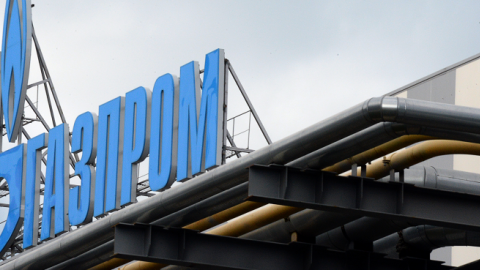Want to understand why Europe won’t stand up to Vladimir Putin’s dismemberment of Ukraine? Look at the recent meeting of the G-7’s energy ministers in Rome.
It’s common knowledge that Europeans are dependent on Russia’s state-run Gazprom for their natural-gas needs — up to 30 percent for the European Union as a whole, more for Eastern Europe. The threat of cutting off this vital supply allowed Putin to get away with annexing Crimea, cowing our NATO allies into quivering passivity in the face of naked aggression.
The energy ministers of France, Germany, Italy and Great Britain meeting in Rome know this, too. As the Brit representative at the Rome meeting put it, Europe desperately needs a plan “to prevent energy being used as a weapon in the future” — and to wean themselves off Gazprom.
But their “answer” is pathetic.
The draft 13-point plan includes everything from stockpiling more supplies of natural gas in case of a cutoff and diversifying supply sources (meaning not just buying from the Russians) to promoting more “clean and sustainable energy technologies” (meaning more windmills).
Everything, that is, except the most obvious solution of all: tapping into Europe’s own huge natural-gas reserves.
According to our Energy Information Administration, Europe sits on reserves equaling 639 trillion cubic feet of gas — roughly equal to half of Russia’s reserves (the world’s largest) and more than enough to make Europe independent of Putin and Gazprom.
But that tapping those reserves means embracing fracking, the technology that has revolutionized the US energy industry by unlocking vast amounts of shale gas and oil.
Like environmentalists here, Europe’s greens have made fracking a dirty word — and the European fanatics have more political clout.
For example, Exxon Mobil began fracking to harvest natural gas in Germany in 2008 — but had to stop when the government issued a moratorium. France has banned fracking outright. The United Kingdom has proven gas reserves of 200 trillion cubic feet in Lancashire alone — but with even the Cameron government pushing, it may be years before permits to drill get granted.
This is insanity in action. Every government in Europe knows fracking would produce enormous government revenues, create tens of thousands of jobs, reduce natural-gas prices there to something approaching the price here (which is about a quarter of what Germans or Italians pay), all while using the same technology that for 60 years has drilled 1.2 million wells in the United States without producing a single case of contaminated ground water.
But Europe’s environmentalists still see natural gas as a dreaded “fossil fuel” and so won’t let it happen. And so Putin is empowered to increase his grip over the continent’s future — even though the solution sits directly under everyone’s feet.
It’s a good lesson for us here, too. Letting the greens dictate your energy choices, whether it’s halting the XL Pipeline or fracking in New York, isn’t just bad economics. It can also leave your rivals and enemies controlling your energy destiny.
Imagine the strong hand we would have had during the Arab oil embargo in 1973-74 if we hadn’t become dependent on imported oil — and the weak hand we would have now dealing with Iran and Venezuela if fracking hadn’t given us a new abundance of oil and gas here at home.
Maybe the Ukraine crisis will awaken the Europeans to reconsider fracking and realize the danger their enviro fanatics have put them in. Or maybe our own fanatics will still win their fight to stop fracking.
Consider Europe’s story a salutary warning of what can happen if the Environmental Defense Fund and its friends in Washington get to call the shots on how we fuel our economic growth — and make us sacrifice not only jobs and prosperity, but energy security, on the altar of combatting “climate change.”

















